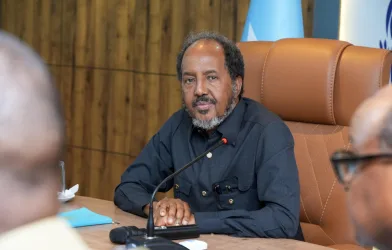khat is a substance used mainly by people from the East Africa and Arabian Peninsulas. In 1980 the World Health organisation (WHO) added khat to its list of drugs of abuse. While it is illegal in most of EU countries, US and Canada, the trade and use of khat is legal in the UK.
 Usually the interpretation of evidence is a complex process and the outcome is usually dependent upon many factors. With the khat debate in the UK, we have many conflicting evidence and interpretations. There is, for instant, the anti khat camp which is predominantly Somali and relies on accounts from users, non users, family and friends affected by its use. The pro khat faction on the other hand is composed of mainly non Somalis, non medics and with no mental health background. Significantly though, they are white men who are mainly on the upper end of the economical spectrum.
Usually the interpretation of evidence is a complex process and the outcome is usually dependent upon many factors. With the khat debate in the UK, we have many conflicting evidence and interpretations. There is, for instant, the anti khat camp which is predominantly Somali and relies on accounts from users, non users, family and friends affected by its use. The pro khat faction on the other hand is composed of mainly non Somalis, non medics and with no mental health background. Significantly though, they are white men who are mainly on the upper end of the economical spectrum.
These two camps make the policy change or the no change, as an extension to the class and race power relationships in the UK. In the past, policies dealing with health issues amongst ethnic minorities were seen important mainly in relation to the threat to society as a whole rather than the prevalence of the problem amongst ethnic groups. The khat substance misuse is no different; it continuous to be largely reviewed within that framework.
The recommendations to the Home Secretary in the latest attempt to review khat by the Alcohol and Drug Misuse Committee (ADMC) 2005 put much emphasis on khat being a minority drug and that its use is unlikely to spread to the larger community. This is not a finding by itself, because most people appreciate that this issue concerns minority groups, therefore such insertions are deemed unnecessary. However, this opinion becomes important when it is observed in the sphere of racism. In that way one may pay attention to the embedded message of the “addicted young black men roaming our streets in search for alternatives and turning to criminality to fund their habits†as it unfolds and becomes a main feature of the report.
Although there are sizable research findings out there in relation to the negative impact of khat, the ADMC report concludes with such an irony that there is no evidence.  In order to make sense of such verdict of “no evidence†then the experiences of the Somali community in the UK and the inherent inequality within our society becomes relevant. In reality, Somalis are the second largest ethnic group in many London boroughs such as Camden and Tower Hamlets, yet a report by the Information Centre about Asylum and Refugees in the UK (ICAR) 2004 summed up how the community feels and is treated. It pointed out that despite of the large numbers of Somalis in the UK, the community remains “invisibleâ€. With such finding then the fact that its needs are not met is within a context.
The whole khat debate has increasingly become polarised to a confrontational level between the mainly underclass group, the Somalis, and the group of white, middle class academics. Yet Somalis tenaciously seek policy change regardless of all the social and cultural barriers that limit their influence on decision making.  For the third time in the last few years, Boris Johnson, the Mayor of London, is considering presenting the concerns of the community to the current Home Office Secretary in an attempt to revise its legal status. The labour government, who claims to have championed social justice and inclusion in the past few years, is caught up in a muddle, which makes their relationship with these concepts extremely paradoxical. On one hand they are for social justice, but on the other they continue with decisions that alienate a section of the population.
UK being the only country, beside the Netherlands, in Europe, US and Canada that does not criminalise the use and trade of khat is really worrying considering that we, in the UK, have no much of a liberal view on drugs as it is the case in the Netherlands.  It is not surprising then, that the Somali community interprets this stance as an intentional attempt to condemn them to a life of disadvantage. A recent report by the Institute for Public Policy Research (IPPR) 2008, showed the high unemployment rate amongst the Somalis in the UK, only less than a quarter of those in working age were in employment. Drugs misuse is, therefore, an added burden on a community that is struggling as it is to restructure its life.
There is no trick left unused by the pro khat campaigners in the UK. Even gender has been at some point exploited. Gender relations within the Somali community are often referred to as contagious, and as such it is claimed that the debate on its entirety is sponsored by Somali women. This contradicts the fact, that the lead on the anti khat campaign is himself a man and former user of khat. Not that only, he was recently awarded by the Somali Youth Forum, led by a group of young men, as the campaigner of the year. http://www.youtube.com/watch?v=YaOJgRnvdjk&feature=player_embedded
The Somali Youth Forum has also become the first Somali organisation to win the London peace Award http://www.youtube.com/watch?v=K4mUWUfvsbQ.
As a mental health specialist myself and a Psychologist in Training, I have no doubt in my mind that khat is an addictive drug that has negative impact on mental health. Beside this as a Somali I am aware of the scale of the problem within the community; there is rarely a family that is not affected directly or indirectly, by its misuse.  The fact that the community continues to demand the status to be revised is a testimony to its due importance. Hence seeking just policies that are based on mutually constructed and negotiated outcomes in an environment that is race and class bias free is not an option for the Somalis.
However, more needs to be done. There is a duty upon all of us as Somalis and as British citizens, to inform our politicians about what we know; that our country’s stance can no longer be justified. It is also equally important that we, as Somalis, choose our battles and come together around those causes that unite us irrespective of where in Somalia we come from.
You can directly go to the petition: http://www.surveymonkey.com/s/LL8P5V6
Or contact the leader of this campaign: (Abukar Awale) on:Â Â abukar_aw@yahoo.co.uk
 Warsan Cismaan Saalax
Warsan Cismaan Saalax
Is the Chair of the British Somali Community and a Psychologist in training
Warsan2001@hotmail.com
Other related articles by the author
http://www.guardian.co.uk/commentisfree/2008/nov/25/drugsandalcohol-somalia
Khat and prejudices in the UK – appealing to the Somali community in the UK
Published: March 9, 2010







